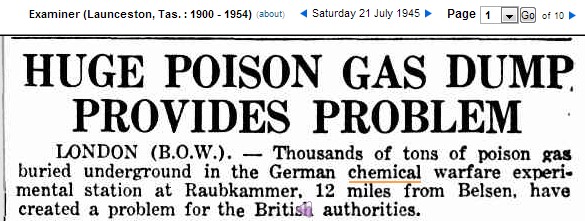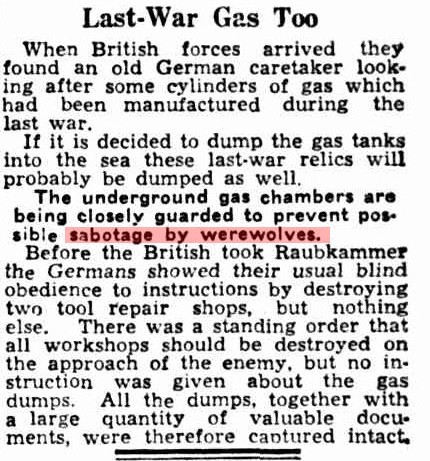Disrupting the Borg is expensive and time consuming!
Google Search
-
Recent Posts
- Analyzing The Western Water Crisis
- Gaslighting 1924
- “Why Do You Resist?”
- Climate Attribution Model
- Fact Checking NASA
- Fact Checking Grok
- Fact Checking The New York Times
- New Visitech Features
- Ice-Free Arctic By 2014
- Debt-Free US Treasury Forecast
- Analyzing Big City Crime (Part 2)
- Analyzing Big City Crime
- UK Migration Caused By Global Warming
- Climate Attribution In Greece
- “Brown: ’50 days to save world'”
- The Catastrophic Influence of Bovine Methane Emissions on Extraterrestrial Climate Patterns
- Posting On X
- Seventeen Years Of Fun
- The Importance Of Good Tools
- Temperature Shifts At Blue Hill, MA
- CO2²
- Time Of Observation Bias
- Climate Scamming For Profit
- Climate Scamming For Profit
- Back To The Future
Recent Comments
- Robertvd on Analyzing The Western Water Crisis
- Bob G on Analyzing The Western Water Crisis
- conrad ziefle on Analyzing The Western Water Crisis
- Bob G on Analyzing The Western Water Crisis
- Bob G on Analyzing The Western Water Crisis
- arn on Analyzing The Western Water Crisis
- conrad ziefle on Analyzing The Western Water Crisis
- Bob G on Analyzing The Western Water Crisis
- conrad ziefle on Analyzing The Western Water Crisis
- Bob G on Analyzing The Western Water Crisis
Hitler’s Non-Existent Thousands Of Tons Of Chemical Weapons Were Threatened By Werewolves
This entry was posted in Uncategorized. Bookmark the permalink.




“Werewolves” was the term for nazi’s who were to fight on after the formal surrender.
http://en.wikipedia.org/wiki/Werwolf
whether any did, or how effective they were is still a topic of debate today.
You beat me to it. The greatest expectation of Werewolf action was for Bavaria, not Lower Saxony.
That being the case, it would have been logical to put the term in quotes, as you did, possibly with an explanation. I don’t think the term would have been well known outside Germany.
It seems possible that whoever wrote the article didn’t know what it was referring to.
Either that or it was so common that it needed no further explanation. Considering the European war was barely over, I would think the threat of ongoing guerilla action would have been high in public consciousness, and the term as familiar as “Charlie” was in the ’70s in the context of Viet Nam.
Wehr is German for defence.
Steve,
being an avid reader in my youth this rang a bell.
This is from Wikipedia.
Werwolf (German for “werewolf”) was the name given to a Nazi plan, which began development in 1944,[2] to create a commando force which would operate behind enemy lines as the Allies advanced through Germany itself. Werwolf remained entirely ineffectual as a combat force, however, and in practical terms, its value as propaganda far outweighed its actual achievements.
redc1c4 beat me to it.
The allies had to deal with German rebels until about 1947. The US read the riot act to the now friendly German army which finally put a stop to it.
Anyone of around my age (62) in Europe would have been familiar with the meaning of “werewolves” in this context. WWII was still very vivid in peoples’ minds in my childhood.
I am sure the journalist believed there were werewolves in the area, and that’s why he wrote the article like that.
Scientists had told him.
Well, I am over 62 and I don’t recall hearing the term used in that context, although the term may have been better known at the time.
And I am not unfamiliar with WWII history.
However, I may just have forgotten about it!
Since the term meaning a human which could literally change into a wolf predates the WWII meaning, I still think that it should have been put in quotes, when referring to the commando force.
P. 469, “Inside the Third Reich,” Albert Speer.
P. 592, “The Guns at Last Light,” Rick Atkinson.
The journalist knew what it referred to, and knew his readers knew. Putting it in quotes would have been talking down to them, although it took all kinds, then and now; all kinds of odd-seeming words were in normal use then, as the men fighting the war were action-oriented and direct in expression, not of a scholarly turn of mind, and just used the going terms. The oddness of such terms was affecting, funny and morale-boosting (because military life is innately tyrannous, and they needed all the fun they could get, if only so they wouldn’t kill their own superiors or the doof next to them when he screwed up badly).
There was very definitely a German resistance in 1945 and 1946. And they were referred to as werewolves.